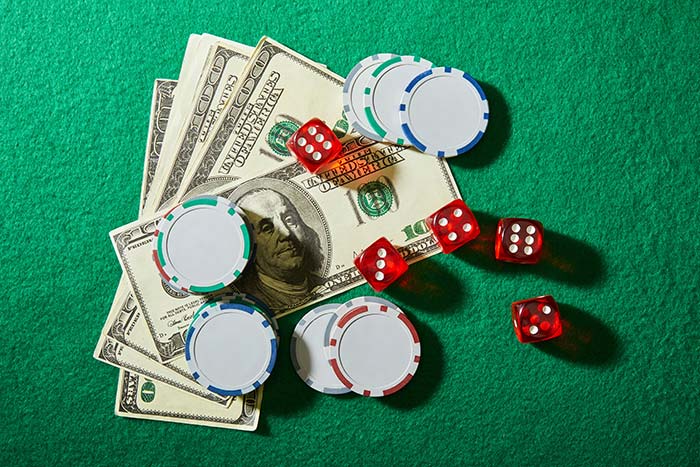I love playing poker. I’m not as good as I’d like to be, but I’m good enough to know many of the mistakes I’m making.
With my wife out of town this past weekend, I spent a lot of my free time at the tables, both in person and online. It was a rare weekend where I won every session.
What I was most proud of was that I won even though I didn’t always have good cards, especially when I played live.
The local card room has a lot of experienced players. When a guy sits down next to you and the dealer greets him by name and asks where his wife is, you know he’s logged a lot of hours in the place.
I took a big pot off of this regular with the one good hand I got all afternoon. He didn’t believe that my hand was as good as I was representing, and he paid for it. An hour later, we reversed roles and he got his money back.
When I got up from the table later that afternoon, I had won my money back and then some.
How’d I do it? By playing the same way I invest.
I’m very disciplined, but I occasionally take a big swing when I believe the odds are in my favor.
Discipline in poker means I don’t play bad cards. I’m patient. I’ll fold hand after hand if I’m not getting good cards and there isn’t the right opportunity to bluff. I know from experience that when I’m undisciplined, I lose my money – usually quickly.
With investing and trading, the same goes.
I use stops to ensure that a small loss doesn’t become a big, devastating loss – and that a nice win doesn’t become a loser.
At the poker table this weekend, the gentleman to my right lost all his chips. He pulled out a wad of cash an inch thick and peeled off another hundred in order to buy more chips. I saw him repeat that several times.
I never – and I mean never – do that. In fact, I don’t even bring enough cash to go back into my pocket in case I’m tempted.
Before I get in the car, I make a rational decision (before emotions take over) about the maximum I’m willing to risk. And that’s what I start with. If I lose it all, I won’t lose any more than I was comfortable risking.
That’s what a stop will do for you in investing.
Poker is also a lesson in position sizing.
The Oxford Club recommends that you never put more than 4% of your portfolio into any one position. That way, if you suffer a 25% loss on the stock, which is where we traditionally set our stops, you’ve only lost 1% of your entire portfolio, which is easy to bounce back from.
The poker world is full of stories of brilliant players who go bust because they’ve mismanaged their money. They take too much risk with too much money, and when things go badly, it becomes a catastrophe.
I’ve worked way too hard in my life to let any one investment take me down. I assume you have too.
Making and losing money is often an emotional experience. Make decisions about stops and position sizing before you put any money at risk.
Your outcomes will be better, and when things do sometimes go against you, it won’t be as traumatic – financially or emotionally.
And if I see you at the tables, trust me, I have the cards.

A perfect segue poker player, per your guidance, I own ETF PFFA, and what a great situation. If /when I re-invest this monthly product, the % of the Account grows very large very quickly.
This ETF looks like a strong, low risk investment. The account percentages are well above the recommended 4% rule. A good problem for sure? Please advise.
Charlie H.
Don’t do it Charlie the ETF is not unlike any other Investment. The more you invest the higher your risk to lose.The 4% rule is a hedge against the ever potential for a decimating loss of which you have to Win the next (eleven) investments to break even . That’s why the use of the 4% rule along with a stop loss is smart thinking for any investment. I had a very close friend that was very successful in small business . He invested most of his free cash into Florida’s pulp wood and the market suddenly tanked and he lost $13,000,000.00. Nearly all the money he’d earned in 15 years of his business. The market is no different.
Thanks Marc. As time goes on I will be getting more involved in investments. Thanks